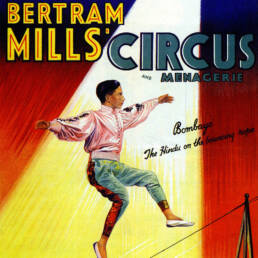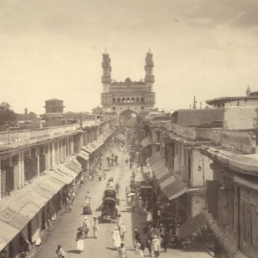Once upon a time in colonial India, the flaky, layered Paratha made its way into the lyrics of a song on Calcutta’s red-light district.
The red-light district of Calcutta received a constant stream of destitute women from the toiling farming communities of oppressed castes during the 19th century.
They were either forced to leave their villages owing to famines or were seduced by liaisons to come to large cities like Calcutta in quest of work, but ended up in brothels.
The Bengali theatre scene provided a unique opportunity for women of the red-light district to become actors in the late 19th century as the women from “respectable” houses were prohibited from acting.
As a result, diverse socio-cultural influences gave rise to a varied range of emotional expressions through songs, letters, and writings.
Songs, in particular, became a confluence of various emotions, including existential crisis, occupational obligation, mundane daily lives, or romantic relationships.
The songs, frequently sexually explicit, loaded with double meanings, served as a tool for the women to seduce and entertain their powerful male clients.
In Sumanta Banerjee’s book “Under the Raj: Prostitutes in Colonial Bengal,” we found a reference to this particular song, that caught our fancy. It was about the continual conflict between a prostitute and her landlady (Bariulee):
“Amar bhalobasha abar kothay basha bedhechhey,
Piriter parota kheye mota hoyechhe.
Mashe mashe barchhe bhaara,
Bariulee dichhe tara,
Goylaparar moyla chhora praaney merechhey”
My love has led me to set up a home in another place.
It has grown fat upon the Paratha of past affairs.
Every month, the rent is increasing.
The landlady is threatening to evict me.
But the dark boy from the milkman’s colony has my heart.
This song mostly laments about the landlady raising the rent, but it also expresses her innermost longing for the dark lad from the milkman’s colony.
Banerjee’s research indicates that this song represents the personalization of Radha-Krishna’s legend in her world. However, it’s quite unexpected to hear the word Paratha (Parota) in such a song.
Or perhaps it isn’t. Commonplace everyday elements, more than romantic imageries, frequently appeared in the lyrics as a complex metaphor. The Paratha is used in line with that.
Paratha is a traditional unleavened and layered flatbread made with whole wheat flour – a staple in the Indian subcontinent. Here it is a brilliant metaphor, for her layered and entangled memories of prior lovers.
In the late 19th century, a prostitute’s love prospects were not particularly promising. Families of aristocrats wouldn’t accept a whore as a wife. Thus, most of their relationships would be fake and commercial.
So, when the neighbourhood lad steals her heart, she had to confront the uncomfortable truth and reach into her memory, which was layered with countless experiences with her male clients like layers of a paratha.
Calcutta has always been a gastronomical paradise, but little did we know how the flaky Paratha found its way into a melancholic ballad from its unpopular red-light district.




